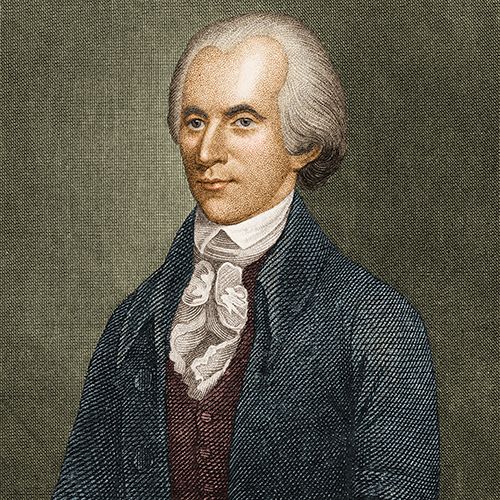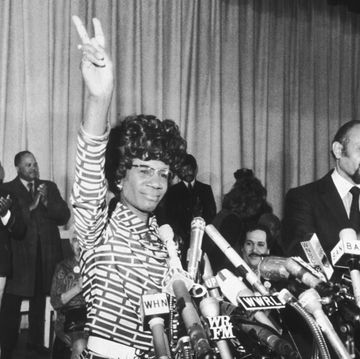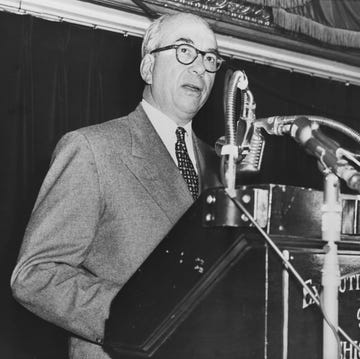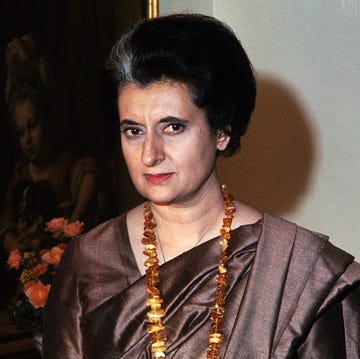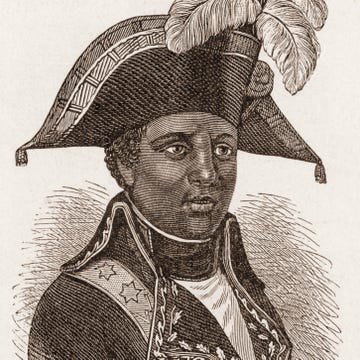(1732-1794)
Who Was Richard Henry Lee?
Richard Henry Lee was an American statesman and one of the Founding Fathers of the United States. Born into a prominent Virginia family, several of Lee's family members served as military officers, diplomats and legislators. After school in England, he was elected to the Virginia House of Burgesses and later was a delegate to the Second Continental Congress, where he proposed the colonies should be independent of Great Britain. Though he originally opposed the Constitution, he helped push through the Bill of Rights.
Early Life
Richard Henry Lee was born on January 20, 1732, at Stratford Hall in Westmoreland, Virginia. His father, grandfather and four brothers all served as military officers, diplomats and legislators. Lee was tutored at home and then sent to Wakefield Academy in England for his formal education. After graduation, he traveled in Europe, and then returned to Virginia in 1752.
Life of Public Service
In 1757, Lee married Anne Aylett and the couple had four children who survived into adulthood. Lee began his life of public service that same year as justice of the peace, and in 1758, he entered the House of Burgesses. Though not one of the early firebrands, like Patrick Henry, when he first entered the assembly, Lee gradually gained position and influence, as his oratorical skills matured and events provided opportunities for young, brilliant men of conviction to shape a nation.
Legislator and Activist
After the conclusion of the Seven Years War, the British Parliament enacted a series of tax measures to pay for the war and secure Britain's hold on the colonies, beginning with the Stamp Act of 1765. Leaders in several colonies objected, declaring this was taxation without representation. Lee is credited with authoring the Westmoreland Resolutions, publicly objecting to the Stamp Act. Though Parliament repealed the act except for the tax on tea, the Stamp Act sent an ominous warning that the British government was supreme in all cases whatsoever. For the next several years, things remained relatively peaceful between the American colonies and the British Parliament.
The Lee Resolution
In April 1774, the British Parliament passed a series of laws labeled the "Intolerable Acts" by irate colonists. In August, Lee was appointed to the Continental Congress, and with his great oratorical skills, he, along with others, began to move American thinking from subservience to independence. In 1776, Lee offered the Resolution for Independence to the Committee of the Whole at the Second Continental Congress. The resolution, which came to be known as the Lee Resolution, declared "that these United Colonies are, and of right ought to be, free and independent States, that they are absolved from all allegiance to the British Crown, and that all political connection between them and the State of Great Britain is, and ought to be, totally dissolved." By July, the Congress had voted for independence.
Senior Statesman
Lee served in the Virginia House of Delegates during the War for Independence but was frequently absent due to ill health. After the war's end, in 1783, he served in Congress under the Articles of Confederation and was unanimously elected president of the Congress. Though he supported the 1787 Federal Convention in Philadelphia, he worried that the new Constitution had too much power over the states and lacked a bill of rights. These arguments were put forth in a series of "Letters of a Federal Farmer," which became a textbook for the opposition during the ratification process. Though the letters' author is unknown, scholars have long believed it was Lee. More recently, Melancton Smith of New York has been considered. It is also possible both men collaborated on the articles.
Death
In 1789, with the Constitution ratified, Lee served as a senator from Virginia, helping shepherd the passage of the Bill of Rights. In declining health, he retired from the Senate and public service to his family and the comfort of his home in Chantilly, Virginia. On June 19, 1794, Lee died at the age of 62.
QUICK FACTS
- Name: Richard Henry Lee
- Birth Year: 1732
- Birth date: January 20, 1732
- Birth State: Virginia
- Birth City: Westmoreland County
- Birth Country: United States
- Gender: Male
- Best Known For: Richard Henry Lee was an American statesman from Virginia who made the motion, known as the Lee Resolution, for independence from Great Britain.
- Industries
- U.S. Politics
- Astrological Sign: Aquarius
- Schools
- Wakefield Academy
- Death Year: 1794
- Death date: June 19, 1794
- Death State: Virginia
- Death City: Westmoreland County
- Death Country: United States
Fact Check
We strive for accuracy and fairness.If you see something that doesn't look right,contact us!
CITATION INFORMATION
- Article Title: Richard Henry Lee Biography
- Author: Biography.com Editors
- Website Name: The Biography.com website
- Url: https://www.biography.com/political-figures/richard-henry-lee
- Access Date:
- Publisher: A&E; Television Networks
- Last Updated: March 29, 2021
- Original Published Date: April 2, 2014
QUOTES
- …that these United Colonies are, and of right ought to be, free and independent States.
- To preserve liberty, it is essential that the whole body of the people always possess arms, and be taught alike, especially when young, how to use them.
